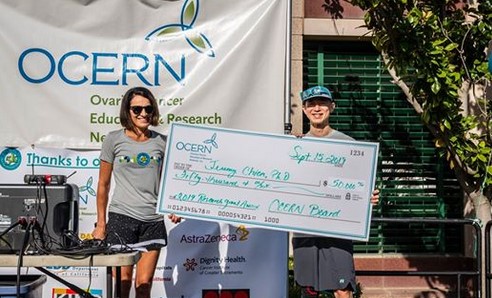Department News
2024
2024 Joan Oettinger Memorial Award Recipient
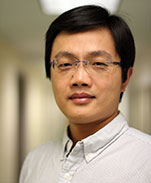
Professor Yuanpei Li has been selected as 2024 Joan Oettinger Memorial Award recipient. In recognition of this achievement, Dr. Li will be acknowledged at the UC Davis School of Medicine Spring General Faculty Meeting on May 22, 2024.
The Joan Oettinger Memorial Award for outstanding lung or cancer research is given annually. This notable award is named in honor of Ms. Oettinger, a UC Davis graduate student who died of lung cancer in 1970.
Congratulations on this well-deserved award!
2023
School of Medicine celebrates implementation of modernized curriculum
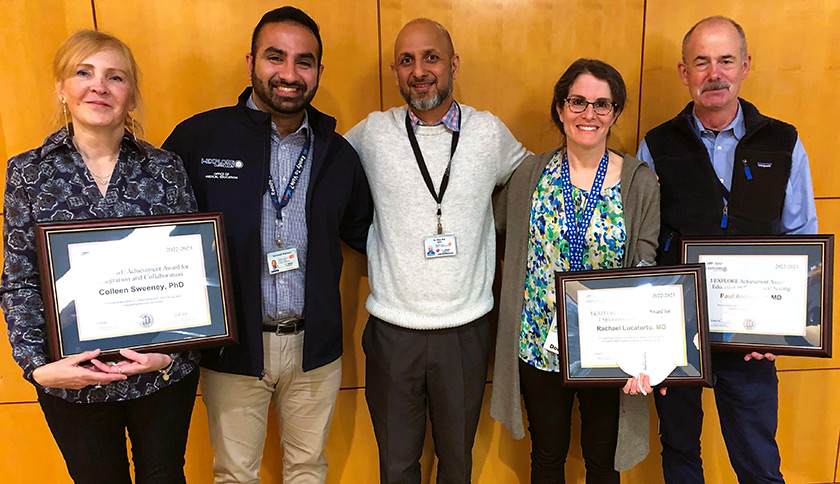
Professor and Vice Chair of Education, Colleen Sweeney, is among the five UC Davis School of Medicine faculty members that were honored this week for their key roles in the implementation of a revamped curriculum that modernizes medical education.
The curriculum, known as I-EXPLORE, has transformed what students learn and how they learn during their four-years of medical school. It was developed by faculty, residents, staff and students – with input from hundreds of others – quickly and during trying circumstances, including the coronavirus pandemic.
Read more about the news article »
Luis Carvajal-Carmona appointed as the Associate Vice Chancellor for the Office of Academic Diversity (DEI/OAD)
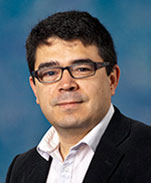
Professor Luis Carvajal-Carmona, has been appointed as the Associate Vice Chancellor for the Office of Academic Diversity (DEI/OAD). Congratulations!
Read more about the news article »
David Olson appointed as the founding director of the Institute for Psychedelics and Neurotherapeutics
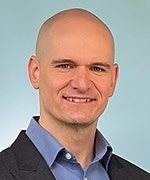
Associate Professor, David Olson has been appointed as the founding director of the Institute for Psychedelics and Neurotherapeutics. Congratulations!
Read the entire news article from here »
David Olson honored as Chancellor’s Fellow

Associate Professor, David Olson has been honored as a 2022-23 Chancellor’s Fellow. Congratulations!
Read the entire news article from here »
2022
Justin Siegel named Fellow of the National Academy of Inventors
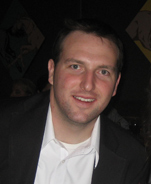
Associate Professor Justin Siegel is one of the two UC Davis faculty members, who have been named Fellows of the National Academy of Inventors (NAI), the highest professional distinction awarded to academic inventors.
Recipients are selected based on their “demonstrated spirit of innovation in creating or facilitating outstanding inventions that have made a tangible impact on the quality of life, economic development, and the welfare of society,” according to the academy.
2022 CAMPOS Faculty Scholar
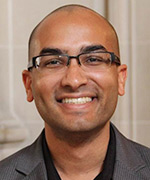
Assistant Professor Alan Lombard, the newest member of our department, has been approved as a UC Davis CAMPOS Faculty Scholar. Congratulations!
CAMPOS Faculty Scholars are nominated and selected for their exceptional records of research and teaching excellence and their commitment and an accomplished track record (calibrated to their career stage) of teaching, research or service activities addressing the needs of underrepresented students or communities in STEMM (Science, Technology, Engineering, Mathematics, and Medicine). As part of the eighth cohort (2022-2023) of CAMPOS Faculty Scholars, Alan will join forty other faculty members, across thirty-one disciplines on the main campus and medical center in Sacramento.
UC Davis is committed to develop a strong and diverse community of STEM (Science, Technology, Engineering, and Mathematics) scholars. The mission of the Center for the Advancement of Multicultural Perspectives on Science (CAMPOS) is to support the discovery of knowledge through an inclusive environment that is diversity-driven, mentorship-grounded and focuses on the career success of its faculty scholars. CAMPOS is a key element of our campus effort to transform the STEM disciplines to become more inclusive, diverse, and engaged with under-served communities.
David Olson mentioned in New York Times article

A story on the cover of the NY Times Sunday Review highlighted the work of Professor David E. Olson, a faculty member in our department. Dr. Olson's group is engineering non-hallucinogenic analogs of psychedelics for treating neuropsychiatric and neurodegenerative diseases.
Read the entire news article from here » (PDF)
Startup developing technology to combat degenerative diseases
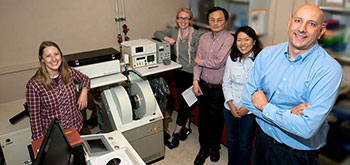
Researchers at UC Davis Health are developing a new approach to treating Alzheimer’s disease and other neurodegenerative diseases. The new area of research targets misfolded proteins and is being led by UC Davis Professor John Voss.
Voss, a professor in the Department of Biochemistry and Molecular Medicine, is developing a unique approach to treating protein misfolding diseases like Alzheimer’s: He uses paramagnetic molecules to diagnose and monitor the disease conditions. His contributions in this field led to the launch of ParaMag Biosciences, a company which plans to commercialize new technologies developed at UC Davis.
Cultivating Team Science Award
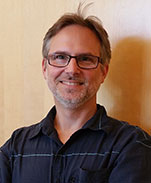
The School of Medicine announced the 2022 awardees of its Cultivating Team Science seed grant program. The grants are awarded for collaborative science projects for which the lead principal investigators are School of Medicine faculty, and the team represents at least two different School of Medicine departments.
The awardees included, David Segal, Ph.D., professor of biochemistry and pharmacology and affiliate of the UC Davis MIND Institute and Genome Center. Segal and his team were awarded for their proposal, An Academic Center for Interventional Genetics. Segal’s interdisciplinary team includes researchers from psychiatry and behavioral science and neurology.
“Best Basic Sciences Instructor” Award from the Graduating Class of 2022
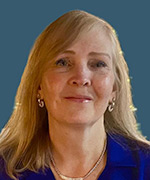
Professor and Vice Chair of Education, Colleen Sweeney is a recipient of the "Best Basic Sciences Instructor" award from the graduating class of 2022. Congratulations!!
New human reference genome opens unexplored regions
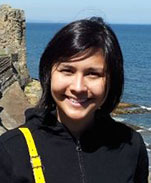
A complete sequence of the human genome has finally been published by an international consortium of scientists. The new reference genome fills in gaps left by earlier drafts, which will help researchers better understand genetic variation and how it can sometimes lead to disease.
The work is described in a series of papers published April 1 in Science by the Telomere-to-Telomere (T2T) Consortium. A number of University of California, Davis investigators contributed to the studies. They include Megan Dennis, assistant professor of biochemistry and molecular medicine at the UC Davis School of Medicine and MIND Institute, with Integrative Genetics and Genomics graduate students Daniela Soto and Colin Shew. Charles Langley, distinguished professor of evolution and ecology at the UC Davis College of Biological Sciences along with his daughter Sasha Langley, a project scientist at UC Berkeley, were also on the team.
Harnessing the power of RORγ in control of cancer and cholesterol metabolism
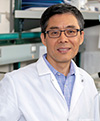
In a Q&A with Hongwu Chen, professor of biochemistry and molecular medicine at UC Davis Health, we discussed how a special receptor protein known as RORγ impacts cancer growth and cholesterol synthesis. Chen is the director of the Cancer Metabolism Initiative of the UC Davis Comprehensive Cancer Center.
Chen and his team are studying the function of RORγ and other related receptor proteins in the development and progress of different cancers.
Lin Tian received a major grant for medical research
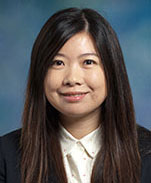
Congratulations to Lin Tian, professor and vice chair for the Department of Biochemistry and Molecular Medicine, for her major grant for medical research from the W.M. Keck Foundation. Dr. Tian’s $1 million grant was awarded for her project to develop and test near-infrared protein sensors for neurochemical neuron signals. This work aims to achieve understanding of when and where neurochemicals release, an important step in developing therapeutic neural drugs without undesired side effects. Dr. Tian’s co-grantee is Na Ji, associate professor of Physics at UC Berkeley.
UC Davis nanomedicine scientist recognized as a top biomedical engineer in the U.S.

Biochemist and molecular medicine professor Yuanpei Li has been elected to the American Institute for Medical and Biological Engineering (AIMBE) 2022 College of Fellows. The College of Fellows is comprised of the top 2% of medical and biological engineers in the country. They are regularly recognized for their contributions in teaching, research, and innovation.
Li was nominated, reviewed, and elected by peers and members of the College of Fellows for outstanding contributions to the development of intelligent nanomedicine platforms to improve drug delivery.
Read more about this news article »
National Science Foundation CAREER Award

Assistant Professor Megan Dennis awarded the National Science Foundation CAREER Award this year! The CAREER Award, NSF's most prestigious grant to early career faculty, provides five years of funding in support of both research and mentoring. UC Davis now has 23 faculty who have been selected for these awards in the 2020-2021 and 2021-2022 cycles. Congratulations!
2021
Marginalized communities to benefit from new breast cancer research

A project, led by Professor Luis Carvajal-Carmona, will offer free genetic counseling and testing for up to 500 women diagnosed with breast cancer. The project aims to identify patients with inherited mutations and improve breast cancer outcomes.
Carvajal-Carmona said the project will be the first to evaluate the benefits of universal genetic testing in marginalized and highly diverse communities in the state. There is a growing body of evidence suggesting that universal testing, which involves offering genetic counseling and testing to all breast cancer patients regardless of their family history, is a cost-effective alternative to family history-based testing.
Read more about the news article »
Graduate Studies Announces the First Faculty Academy of Graduate Student Well-Being

Professor David Segal has been selected to the inaugural cohort of the Faculty Academy of Graduate Student Well-being. Congratulations!!
Read more about the news article »
New research funding aims to improve the health of women
UC Davis Health researchers will receive a $24 million award for research aimed at improving cancer, heart disease and Alzheimer’s disease care for women.

Professor Luis G. Carvajal-Carmona is one of the recipients of this award, for a project to make breast cancer precision medicine more accessible to marginalized communities. Congratulations!!
Read more about the news article »
Colleen Sweeney has been Accepted as an Inaugural Anti-Racism & Cultural Humility (ARC) Fellow

Professor and Vice Chair of Education, Colleen Sweeney has been accepted as an inaugural Anti-Racism & Cultural Humility (ARC) Fellow. Congratulations!!
Read more about the fellowship »
Luis G. Carvajal-Carmona Selected as HACU Leadership Academy Fellow

The Hispanic Association of Colleges and Universities (HACU) today announced that Professor Luis G. Carvajal-Carmona has been selected as a fellow for the third cohort of the Presidential Leadership Academy (La Academia de Liderazgo). The prestigious one-year HACU program is designed to prepare the next generation of culturally diverse leaders for executive and senior-level positions in higher education. Congratulations!!
Read more about the news article »
2021 ADVANCE Scholar Award

Professor Luis G. Carvajal-Carmona is one of two recipients selected for the "2021 ADVANCE Scholar Award". Congratulations!!
The ADVANCE Scholar Award highlights and celebrates the contributions that STEM faculty at UC Davis have made to their fields through outstanding scholarship and mentorship. The award aims to encourage excellence in research as well as leadership and outreach to underserved communities and/or mentorship of under-represented students.
Chancellor's Award for Excellence in Mentoring Undergraduate Research

Professor Luis G. Carvajal-Carmona is a recipient of the "2021 Chancellor's Award for Excellence in Mentoring Undergraduate Research". Congratulations!!
This annual award was instituted in 1994 to recognize faculty for excellence in mentoring undergraduate research as a way to emphasize the importance and visibility of faculty’s contribution to the excellence in mentoring and advocacy for undergraduate research and creative activities. The annual award was expanded to recognize the critical contributions of individuals at the graduate and post-doc level in 2015 and further expanded to include nominations of project scientists/specialists in 2021. The nominee in each category must be exceptional for his/her/their contribution to the mentoring of undergraduate students in research and/or creative activities.
2021 UC Davis Graduate Studies Distinguished Graduate and Postdoctoral Mentoring Award

Assistant Professor David E. Olson is a recipient of the "2021 UC Davis Graduate Studies Distinguished Graduate and Postdoctoral Mentoring Award". Congratulations!!
2021 Camille Dreyfus Teacher-Scholar

Assistant Professor David E. Olson is one of only 16 early-career researchers nationwide selected for the 2021 Camille Dreyfus Teacher-Scholar Award by the Camille and Henry Dreyfus Foundation. Congratulations!!
“Outstanding Basic Sciences Instructor” Award from the Graduating Medical Class of 2021

Professor and Vice Chair of Education, Colleen Sweeney is a recipient of the "Outstanding Basic Sciences Instructor" award from the Graduating Medical Class of 2021. Congratulations!!
Calibrating Lactoferrin Protein in Milk may Boost Learning and Protect Neurons
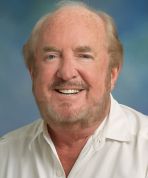
Diets with different concentrations of lactoferrin (Lf), a protein found naturally in human and cow milk, have significantly different impacts on brain development and neuroprotection, a new study co-led by Professor Frederic A. Troy II has found.
“Our studies revealed an unexpected and rather paradoxical finding,” Troy said.
The study, published in the journal Molecular Nutrition and Food Research, showed that lower Lf levels were linked to better neurodevelopment and learning. Higher levels were strongly correlated with the protection of neurons and possibly the prevention of neurological-associated disorders.
Read more about the news article »
The NIH Somatic Cell Genome Editing program
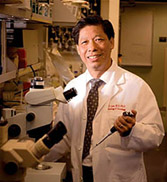

The NIH has allocated US$190 million over 6 years in support of the Somatic Cell Genome Editing (SCGE) Consortium, which now includes 72 principal investigators from 38 institutions that are pursuing 45 distinct but well-integrated projects. BMM professors Kit Lam and David Segal are part of three projects at UC Davis, along with R. Holland Cheng, Alice Tarantal, and Dennis Hartigan-O'Connor. A paper describing this effort appears in the April 8, 2021 issue of Nature.
2020
New Compound Related to Psychedelic Ibogaine Could Treat Addiction, Depression

A non-hallucinogenic version of the psychedelic drug ibogaine, with potential for treating addiction, depression and other psychiatric disorders, has been developed by researchers at the University of California, Davis. A paper describing the work is published Dec. 9 in Nature.
“Psychedelics are some of the most powerful drugs we know of that affect the brain,” said David Olson, Ph.D., assistant professor of chemistry and biochemistry and molecular medicine at UC Davis and senior author on the paper. “It’s unbelievable how little we know about them.”
Read more about this news article »
24 researchers among top 10% for NIH research funding


Twenty-four principal investigators from the UC Davis School of Medicine, that included the departmental faculty members, Kit S. Lam, M.D., Ph.D. and Chengji Zhou, Ph.D., ranked in the top 10% of their respective fields for 2019 National Institute of Health (NIH) funding, according to the Blue Ridge rankings.
Read more about this news article »
School of Medicine team contributes to special issue of Birth Defects Research
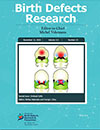 A UC Davis research team, consisting of postdoctoral fellows, graduate students and undergraduates led by Chengji Zhou, Ph.D., professor of biochemistry and molecular medicine at the UC Davis School of Medicine, has made major contributions to the latest issue of Birth Defects Research. This issue was published online this month.
A UC Davis research team, consisting of postdoctoral fellows, graduate students and undergraduates led by Chengji Zhou, Ph.D., professor of biochemistry and molecular medicine at the UC Davis School of Medicine, has made major contributions to the latest issue of Birth Defects Research. This issue was published online this month.
Colleen Sweeney receives tenth award for her contribution to teaching medical education
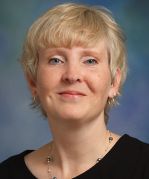 The department would like to congratulate Colleen Sweeney on her tenth award for medical education. The Kaiser teaching awards are made possible by a grant from the Kaiser Foundation Hospitals and are given on an annual basis, following nomination by students, residents and faculty. Colleen Sweeney, Professor of Biochemistry and Molecular Medicine, received the 2020 award for "Excellence in Teaching in Pre-clinical Sciences" which recognizes "outstanding teaching qualities including enthusiasm, sincere interest in and willingness to help students, ability to motivate learning and the quality of teaching aids". This is the third time Dr. Sweeney has received this award and it is her tenth award for medical education since joining our School of Medicine in 2000.
The department would like to congratulate Colleen Sweeney on her tenth award for medical education. The Kaiser teaching awards are made possible by a grant from the Kaiser Foundation Hospitals and are given on an annual basis, following nomination by students, residents and faculty. Colleen Sweeney, Professor of Biochemistry and Molecular Medicine, received the 2020 award for "Excellence in Teaching in Pre-clinical Sciences" which recognizes "outstanding teaching qualities including enthusiasm, sincere interest in and willingness to help students, ability to motivate learning and the quality of teaching aids". This is the third time Dr. Sweeney has received this award and it is her tenth award for medical education since joining our School of Medicine in 2000.
New Double-Contrast Technique Picks Up Small Tumors on MRI
 Early detection of tumors is extremely important in treating cancer. A new technique developed by researchers at the University of California, Davis, offers a significant advance in using magnetic resonance imaging to pick out even very small tumors from normal tissue. The work is published May 25 in the journal Nature Nanotechnology.
Early detection of tumors is extremely important in treating cancer. A new technique developed by researchers at the University of California, Davis, offers a significant advance in using magnetic resonance imaging to pick out even very small tumors from normal tissue. The work is published May 25 in the journal Nature Nanotechnology.
“It’s a significant advance,” said senior author Yuanpei Li, associate professor of biochemistry and molecular medicine at the UC Davis School of Medicine and Comprehensive Cancer Center. “This could help detect very small early-stage tumors.”
Read more about this news article »
UC Davis researchers get $3 million FAST grant to find treatment for Angelman syndrome
 Departmental faculty member, David Segal, Ph.D. is one of the two researchers who have been awarded a $3 million grant to advance their work in finding effective treatment for Angelman syndrome, a rare neurodevelopmental disorder.
Departmental faculty member, David Segal, Ph.D. is one of the two researchers who have been awarded a $3 million grant to advance their work in finding effective treatment for Angelman syndrome, a rare neurodevelopmental disorder.
Angelman syndrome occurs in one in 15,000 births. It is caused by the loss of expression of a protein made by the UBE3A gene in the brain cells. This gene plays a critical role in the function of the body’s nervous system. It leads to seizures, sleep disturbances, impaired communication development and motor and balance deficits.
Keck Foundation grant will help scientists see small proteins

A team of UC Davis Health scientists that includes Dr. Kit S. Lam, has been awarded a $1 million grant from the Keck Foundation to develop a tool for visualizing proteins that so far have been hard to study due to size.
The tool involves using fluorescent-tagged peptides to bind and illuminate proteins of interest, even those smaller than 5 nanometers. Current options do not work well with proteins smaller than 20 nanometers.
2019
UC Davis Researchers Are Highly Cited
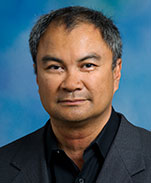 Departmental faculty member, Carlito Lebrilla, Ph.D., is one among the sixteen UC Davis researchers that have been named in the annual Highly Cited Researchers 2019 list released by the Web of Science Group, which compiles statistics on scientific publishing. The list identifies scientists and social scientists who have published multiple papers ranking in the top 1 percent by citations in a particular field and year, over a 10-year period.
Departmental faculty member, Carlito Lebrilla, Ph.D., is one among the sixteen UC Davis researchers that have been named in the annual Highly Cited Researchers 2019 list released by the Web of Science Group, which compiles statistics on scientific publishing. The list identifies scientists and social scientists who have published multiple papers ranking in the top 1 percent by citations in a particular field and year, over a 10-year period.
Young investigator awarded $1 million for prostate cancer research
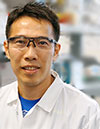 Tsung-Chieh (James) Shih has been awarded a $1 million Idea Development Award from the U.S. Department of Defense to study whether a novel combination drug therapy can be effective against advanced prostate cancer.
Tsung-Chieh (James) Shih has been awarded a $1 million Idea Development Award from the U.S. Department of Defense to study whether a novel combination drug therapy can be effective against advanced prostate cancer.
Shih’s collaborators are Kit Lam and Ruiwu Liu in the Department of Biochemistry and Molecular Medicine, Allen Gao in the Department of Urology and Emanual Maverakis in the Department of Dermatology.
UC Davis awarded new CRISPR grant to test novel approach to cancer treatment
 UC Davis researchers have been awarded $1.5 million from the National Institutes of Health (NIH) for the first part of a project to develop a novel approach to deliver genome editing machinery to genes responsible for a rare form of familial cancer.
UC Davis researchers have been awarded $1.5 million from the National Institutes of Health (NIH) for the first part of a project to develop a novel approach to deliver genome editing machinery to genes responsible for a rare form of familial cancer.
Kit S. Lam, distinguished professor and chair of the Department of Biochemistry and Molecular Medicine in the School of Medicine, and R. Holland Cheng, professor of Molecular and Cellular Biology in the College of Biological Sciences, aim to demonstrate that CRISPR, a technology that allows alteration of DNA sequences to modify gene function, can be successfully packaged and delivered to target cells in a living animal.
2019 OCERN Research Award
Congratulations to Jeremy Chien, recipient of this year's OCERN Research award of $50,000. Dr. Chien will use the funds to work on ways to improve the effectiveness of ovarian cancer treatments. He's pictured here with Gina Dayton, ovarian cancer survivor and event organizer.
A new target for triple-negative breast cancer?
 Early-stage breast cancer can be curable, but one type presents major treatment challenges: triple-negative breast cancer (TNBC). “Triple negative” means these tumors lack the receptors for estrogen, progesterone and HER2, so TNBC patients don’t have access to important targeted therapies, such as Herceptin or Tamoxifen.
Early-stage breast cancer can be curable, but one type presents major treatment challenges: triple-negative breast cancer (TNBC). “Triple negative” means these tumors lack the receptors for estrogen, progesterone and HER2, so TNBC patients don’t have access to important targeted therapies, such as Herceptin or Tamoxifen.
“TNBC is actually many different kinds of cancer,” says Hongwu Chen, professor in the Department of Biochemistry and Molecular Medicine and a Cancer Center researcher. “Some of them are very aggressive and are more likely to relapse after treatment.”
A comprehensive study on the structure of the vimentin protein
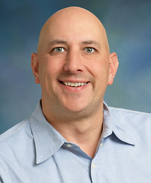 The Voss lab, together with the FitzGerald lab of Cell Biology and Human Anatomy, published a comprehensive study on the structure of the vimentin protein. The article, “Completion of the vimentin rod domain structure using experimental restraints: a new tool for exploring Intermediate Filament assembly and mutations” appeared August 8th in Cell: Structure. The work includes description of vimentin’s linker 1-2 region, which has thus far eluded structural determination. The Voss and FitzGerald groups used a combination of EPR spectroscopy and molecular modeling to describe linker 1-2 and unite the separate elements of the vimentin rod domain into a single experimentally-based model.
The Voss lab, together with the FitzGerald lab of Cell Biology and Human Anatomy, published a comprehensive study on the structure of the vimentin protein. The article, “Completion of the vimentin rod domain structure using experimental restraints: a new tool for exploring Intermediate Filament assembly and mutations” appeared August 8th in Cell: Structure. The work includes description of vimentin’s linker 1-2 region, which has thus far eluded structural determination. The Voss and FitzGerald groups used a combination of EPR spectroscopy and molecular modeling to describe linker 1-2 and unite the separate elements of the vimentin rod domain into a single experimentally-based model.
Luis Carvajal-Carmona named basic science leader at Cancer Center
 Associate Professor Luis Carvajal-Carmona has been named associate director for basic science at the UC Davis Comprehensive Cancer Center, reflecting the cancer center’s growing emphasis on improving cancer health equity and overcoming disparities in its 19-county catchment area.
Associate Professor Luis Carvajal-Carmona has been named associate director for basic science at the UC Davis Comprehensive Cancer Center, reflecting the cancer center’s growing emphasis on improving cancer health equity and overcoming disparities in its 19-county catchment area.
Department of Defense grant will support novel bladder cancer treatment research
 Kit Lam, professor and chair of the UC Davis Department of Biochemistry and Molecular Medicine, and a research leader at the NCI-designated Comprehensive Cancer Center, has received a $4.6 million grant from the U.S. Department of Defense to study ways to improve immunotherapy treatment in patients with locally advanced and metastatic bladder cancer.
Kit Lam, professor and chair of the UC Davis Department of Biochemistry and Molecular Medicine, and a research leader at the NCI-designated Comprehensive Cancer Center, has received a $4.6 million grant from the U.S. Department of Defense to study ways to improve immunotherapy treatment in patients with locally advanced and metastatic bladder cancer.
UC Davis launches center to advance genome-editing tools
 UC Davis today announced the launch of a new National Institutes of Health (NIH) funded research center dedicated to helping the nation develop safe and effective genome editing tools to treat patients with both common and rare diseases.
UC Davis today announced the launch of a new National Institutes of Health (NIH) funded research center dedicated to helping the nation develop safe and effective genome editing tools to treat patients with both common and rare diseases.
The Center’s leadership includes David Segal, professor of biochemistry and molecular medicine, and faculty member in the UC Davis Genome Center.
How psychedelics could help treat depression
 Lindsay Cameron, a Ph.D., student form David Olson’s lab and other researchers at UC Davis are actively exploring drugs capable of spurring such neural growth and restoring health. And some dark horse candidates are psychedelics like LSD, psilocybin and DMT.
Lindsay Cameron, a Ph.D., student form David Olson’s lab and other researchers at UC Davis are actively exploring drugs capable of spurring such neural growth and restoring health. And some dark horse candidates are psychedelics like LSD, psilocybin and DMT.
California breast cancer experts gather to address health equality among Latinas
 The UC Davis Comprehensive Cancer Center recently established a Latino Cancer Health Equity Initiative led by Luis Carvajal-Carmona, an associate professor in the UC Davis Health Department of Biochemistry and Molecular Medicine and in the UC Davis College of Biological Sciences. As part of this initiative, this mini-symposium will focus on prevention, diagnosis and treatment among Latinas with breast cancer and feature brief talks by California experts.
The UC Davis Comprehensive Cancer Center recently established a Latino Cancer Health Equity Initiative led by Luis Carvajal-Carmona, an associate professor in the UC Davis Health Department of Biochemistry and Molecular Medicine and in the UC Davis College of Biological Sciences. As part of this initiative, this mini-symposium will focus on prevention, diagnosis and treatment among Latinas with breast cancer and feature brief talks by California experts.
State awards $8.8 million to UC Davis for Alzheimer's disease research
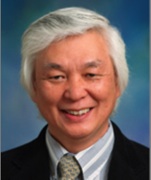 Professor Thomas Jue is one among the four UC Davis scientists and clinicians who have received grants totaling $8.8 million from the California Department of Public Health to study the role of racial disparities, diabetes, diet and infection in Alzheimer’s disease as part of a $21 million package of 11 Alzheimer’s research grants statewide.
Professor Thomas Jue is one among the four UC Davis scientists and clinicians who have received grants totaling $8.8 million from the California Department of Public Health to study the role of racial disparities, diabetes, diet and infection in Alzheimer’s disease as part of a $21 million package of 11 Alzheimer’s research grants statewide.
Can psychedelic drugs treat depression?
 Researchers have in recent years studied the potential benefits of microdosing psychedelic drugs such as LSD and MDMA as treatments for PTSD, schizophrenia, and depression associated with cancer treatment. Last year, the US Food and Drug Administration (FDA) approved the use of an ingredient found in magic mushrooms for a drug trial aimed at treating depression. Opponents, though, say the research is too new and limited to be reliable, while others who are critical say what little research does exist excludes communities of color.
Researchers have in recent years studied the potential benefits of microdosing psychedelic drugs such as LSD and MDMA as treatments for PTSD, schizophrenia, and depression associated with cancer treatment. Last year, the US Food and Drug Administration (FDA) approved the use of an ingredient found in magic mushrooms for a drug trial aimed at treating depression. Opponents, though, say the research is too new and limited to be reliable, while others who are critical say what little research does exist excludes communities of color.
Watch the full interview with assistant professor David Olson »
Psychedelic microdosing in rats shows beneficial effects
 The growing popularity of microdosing — taking tiny amounts of psychedelic drugs to boost mood and mental acuity — is based on anecdotal reports of its benefits. Now, a study in rats by research team led by assistant professor David Olson, at the University of California, Davis, suggests microdosing can provide relief for symptoms of depression and anxiety, but also found potential negative effects. The work is published March 4 in the journal ACS Chemical Neuroscience.
The growing popularity of microdosing — taking tiny amounts of psychedelic drugs to boost mood and mental acuity — is based on anecdotal reports of its benefits. Now, a study in rats by research team led by assistant professor David Olson, at the University of California, Davis, suggests microdosing can provide relief for symptoms of depression and anxiety, but also found potential negative effects. The work is published March 4 in the journal ACS Chemical Neuroscience.
Psychedelics as a treatment for depression
 David E. Olson, assistant professor in the Department of Chemistry and the Department of Biochemistry & Molecular Medicine at the University of California, Davis, explores how psychedelic compounds could treat disorders of the mind.
David E. Olson, assistant professor in the Department of Chemistry and the Department of Biochemistry & Molecular Medicine at the University of California, Davis, explores how psychedelic compounds could treat disorders of the mind.
Symposium to tackle environmental cancer incidence
 UC Davis researchers from a variety of disciplines will unite at the first-ever Effects of Lifestyle, Environmental, and Microbial Exposures and Nutrition on Tumorigenesis Symposium (ELEMENTS) at the UC Davis Comprehensive Cancer Center Goodnight Auditorium on March 7. This new initiative led by cancer geneticist Luis Carvajal-Carmona will focus on a broad range of exposures and occupational practices that affect individuals within the Cancer Center’s 19-county service area.
UC Davis researchers from a variety of disciplines will unite at the first-ever Effects of Lifestyle, Environmental, and Microbial Exposures and Nutrition on Tumorigenesis Symposium (ELEMENTS) at the UC Davis Comprehensive Cancer Center Goodnight Auditorium on March 7. This new initiative led by cancer geneticist Luis Carvajal-Carmona will focus on a broad range of exposures and occupational practices that affect individuals within the Cancer Center’s 19-county service area.
2018
Sue Jane Leung Presidential Chair in Cancer Research Named
 Professor and Chair, Kit Lam was honored December 21 as the inaugural holder of the Sue Jane Leung Presidential Chair in Cancer Research.
Professor and Chair, Kit Lam was honored December 21 as the inaugural holder of the Sue Jane Leung Presidential Chair in Cancer Research.
Distinguished Professor Carlito Lebrilla Elected AAAS Fellow
 Professor Carlito Lebrilla is one of 10 UC Davis faculty members newly elected as fellows of the American Association for the Advancement of Science, the association announced today. Lebrilla was elected to the Chemistry section for his contributions to glycoscience in the development of methods for characterizing and profiling glycoconjugates and the subsequent development of biomarkers for diseases and nutrition.
Professor Carlito Lebrilla is one of 10 UC Davis faculty members newly elected as fellows of the American Association for the Advancement of Science, the association announced today. Lebrilla was elected to the Chemistry section for his contributions to glycoscience in the development of methods for characterizing and profiling glycoconjugates and the subsequent development of biomarkers for diseases and nutrition.
Young UC Davis scientist receives major NIH grant for genetics research

Assistant professor Megan Dennis is the recipient of the NIH Director’s New Innovator Award to study genes unique to humans that may contribute to neurodevelopmental disorders including autism.
UC Davis announces the 2017 recipients of the Edward A. Dickson Emeriti Professorship Award
 Professor emeritus and former Chair, Frederic Troy, II is one among the 2017 recipients of the Edward A. Dickson Emeriti Professorship Award. The award is supported by an endowment provided by Edward A. Dickson for the support of emeriti professorships and is awarded to one or more of our emeriti faculty on an annual basis.
Professor emeritus and former Chair, Frederic Troy, II is one among the 2017 recipients of the Edward A. Dickson Emeriti Professorship Award. The award is supported by an endowment provided by Edward A. Dickson for the support of emeriti professorships and is awarded to one or more of our emeriti faculty on an annual basis.
Dean's fellowships in entrepreneurship, informatics and precision medicine announced
 Associate professor, Luis Carvajal-Carmona is a recipient of the Precision Medicine Fellow award.
Associate professor, Luis Carvajal-Carmona is a recipient of the Precision Medicine Fellow award.
The Dean’s Fellowship Awards offer a unique opportunity for promising junior- to mid-career level faculty to further develop their careers as independent research investigators and academic leaders. This year's awardees are developing new methods, tools and outcomes as well as institutional infrastructure in the areas of entrepreneurship, informatics and precision medicine. The fellowship supports two-to-three years of research and includes resources, salary and benefits.
Positive effects of LSD
 New research from UC Davis shows psychedelic drugs, including well-known compounds such as LSD and MDMA, could stimulate the growth of new branches and connections in brain cells and then heal those cells. David Olson, an assistant professor in the departments of Chemistry and of Biochemistry and Molecular Medicine talks to BBC News about the paper published June 12 in the journal Cell Reports.
New research from UC Davis shows psychedelic drugs, including well-known compounds such as LSD and MDMA, could stimulate the growth of new branches and connections in brain cells and then heal those cells. David Olson, an assistant professor in the departments of Chemistry and of Biochemistry and Molecular Medicine talks to BBC News about the paper published June 12 in the journal Cell Reports.
Watch the full interview with assistant professor David Olson »
Psychedelic Drugs Change Structure of Neurons
 A team of scientists at the University of California, Davis, led by assistant professor David Olson, is exploring how hallucinogenic drugs impact the structure and function of neurons — research that could lead to new treatments for depression, anxiety and related disorders. In a paper published on June 12 in the journal Cell Reports, they demonstrate that a wide range of psychedelic drugs, including well-known compounds such as LSD and MDMA, increase the number of neuronal branches (dendrites), the density of small protrusions on these branches (dendritic spines), and the number of connections between neurons (synapses).
A team of scientists at the University of California, Davis, led by assistant professor David Olson, is exploring how hallucinogenic drugs impact the structure and function of neurons — research that could lead to new treatments for depression, anxiety and related disorders. In a paper published on June 12 in the journal Cell Reports, they demonstrate that a wide range of psychedelic drugs, including well-known compounds such as LSD and MDMA, increase the number of neuronal branches (dendrites), the density of small protrusions on these branches (dendritic spines), and the number of connections between neurons (synapses).
Transformative technology: Q&A with UC Davis neuroscientist Lin Tian
 UC Davis neuroscientist Lin Tian and her team, Tommaso Patriarchi, Gerard Broussard and Ruqiang Liang, have developed fluorescence sensors that are opening a new era for the optical recording of dopamine activity in the living brain.
UC Davis neuroscientist Lin Tian and her team, Tommaso Patriarchi, Gerard Broussard and Ruqiang Liang, have developed fluorescence sensors that are opening a new era for the optical recording of dopamine activity in the living brain.
Lebrilla Wins Senate Research Award

Professor Carlito Lebrilla, is a recipient of the Academic Senate’s 2018 Distinguished Research Award (formerly the Faculty Research Lecture). Lebrilla’s pioneering work on complex sugars, or oligosaccharides, has led to insights into infant nutrition and cancer through collaborations all over campus.
2017
UC Davis licenses novel compound that helps stem cells regenerate bone
 The University of California, Davis, has reached a licensing agreement with Regenerative Arthritis and Bone Medicine (RABOME) for a class of drugs developed at the university that hold potential for treating diseases associated with bone loss and inflammatory arthritis.
The University of California, Davis, has reached a licensing agreement with Regenerative Arthritis and Bone Medicine (RABOME) for a class of drugs developed at the university that hold potential for treating diseases associated with bone loss and inflammatory arthritis.
The development of the novel therapy is the result of a successful research collaboration between two teams at UC Davis: a group of experts on bone health, led by Nancy Lane and Wei Yao from the UC Davis Center for Musculoskeletal Health, and a synergistic group of medicinal chemists led by Kit Lam and Ruiwu Liu from the Department of Biochemistry and Molecular Medicine.
Faulty DNA error correction genes set stage for familial gastric cancer
 A large team of researchers from UC Davis that included associate professor Luis Carvajal-Carmona and several European and Latin American institutions have identified genetic variations that contribute to familial gastric cancer. These inherited mutations, which affect the PALB2, BRCA1 and RAD51C genes and have been implicated in other cancer types, impair a critical DNA repair mechanism called homologous recombination. These findings could improve preventive care, as well as provide targets for new therapies. The study was published last month in the journal Gastroenterology.
A large team of researchers from UC Davis that included associate professor Luis Carvajal-Carmona and several European and Latin American institutions have identified genetic variations that contribute to familial gastric cancer. These inherited mutations, which affect the PALB2, BRCA1 and RAD51C genes and have been implicated in other cancer types, impair a critical DNA repair mechanism called homologous recombination. These findings could improve preventive care, as well as provide targets for new therapies. The study was published last month in the journal Gastroenterology.
2016
New grants help UC Davis researchers home in on Angelman syndrome treatment
 Two UC Davis researchers have received grants totaling $1.6 million to advance their work to find an effective treatment for Angelman syndrome, a rare genetic disorder that causes seizures and sleep disturbances and inhibits language development.
Two UC Davis researchers have received grants totaling $1.6 million to advance their work to find an effective treatment for Angelman syndrome, a rare genetic disorder that causes seizures and sleep disturbances and inhibits language development.
David Segal, professor in the Department of Biochemistry and Molecular Medicine, received $1.1 million, and Joe Anderson, assistant adjunct professor in the Department of Internal Medicine, received $500,000 from the Foundation for Angelman Syndrome Therapeutics (FAST) to pursue two different approaches to developing treatments for the neurologic disease.
Neu5Gc in red meat and organs may pose a significant health hazard
 Neu5Gc, a non-human sialic acid sugar molecule common in red meat that increases the risk of tumor formation in humans, is also prevalent in pig organs, with concentrations increasing as the organs are cooked, a study by researchers from the UC Davis School of Medicine and Xiamen University School of Medicine has found. Professor and chair emeritus Frederic A. Troy II, co-authored the study.
Neu5Gc, a non-human sialic acid sugar molecule common in red meat that increases the risk of tumor formation in humans, is also prevalent in pig organs, with concentrations increasing as the organs are cooked, a study by researchers from the UC Davis School of Medicine and Xiamen University School of Medicine has found. Professor and chair emeritus Frederic A. Troy II, co-authored the study.
Lam obtains major federal grants
 Kit Lam, professor and chair of the UC Davis Department of Biochemistry and Molecular Medicine, has received two major cancer research grants totaling more than $3 million.
Kit Lam, professor and chair of the UC Davis Department of Biochemistry and Molecular Medicine, has received two major cancer research grants totaling more than $3 million.
Kit Lam appointed to NCI Board of Scientific Counselors
 Kit Lam, professor and chair of the UC Davis Department of Biochemistry and Molecular Medicine, has been appointed to the National Cancer Institute’s Basic Science Board of Scientific Counselors (BSC).
Kit Lam, professor and chair of the UC Davis Department of Biochemistry and Molecular Medicine, has been appointed to the National Cancer Institute’s Basic Science Board of Scientific Counselors (BSC).
The group of senior advisors helps the NCI assure continued quality of scientific research, and advises on strategic direction and opportunities for intramural research. Lam is co-leader of the UC Davis Comprehensive Cancer Center’s Cancer Therapeutics Program and an expert in combinatorial chemistry, chemical biology, drug development, molecular imaging, nanotherapeutics and medical oncology.
UC Davis K12 scholars funded for cancer research
 The National Cancer Institute has again funded the K12 Paul Calabresi Clinical Oncology Training Grant to promote and sustain the development of young cancer scientists from diverse fields and from laboratories and clinics across both UC Davis campuses. Associate professor, Luis Carvajal-Carmona is one of the recipients of the grant.
The National Cancer Institute has again funded the K12 Paul Calabresi Clinical Oncology Training Grant to promote and sustain the development of young cancer scientists from diverse fields and from laboratories and clinics across both UC Davis campuses. Associate professor, Luis Carvajal-Carmona is one of the recipients of the grant.
Stem cell research reveals myelin repair capacity
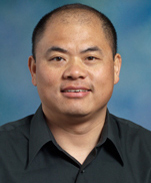 Using genetically engineered stem cells, UC Davis researchers have identified brain cell interactions that offer a possible pathway to developing therapies for human myelin diseases such as cerebral palsy and multiple sclerosis.
Using genetically engineered stem cells, UC Davis researchers have identified brain cell interactions that offer a possible pathway to developing therapies for human myelin diseases such as cerebral palsy and multiple sclerosis.
In a study published in Cell Reports, Wenbin Deng and his colleagues present data showing that immature astroglial transplants, derived from human-induced pluripotent stem cells (iPSCs), are highly protective against white matter brain injury – which can occur from lack of oxygen following a stroke or in childbirth – and can improve spatial learning and memory function in mouse models.
New target makes end run against therapy-resistant prostate cancer
 Researchers at UC Davis, in collaboration with the other institutions, have found that suppressing the nuclear receptor protein ROR-γ with small-molecule compounds can reduce androgen receptor (AR) levels in castration-resistant prostate cancer and stop tumor growth.
Researchers at UC Davis, in collaboration with the other institutions, have found that suppressing the nuclear receptor protein ROR-γ with small-molecule compounds can reduce androgen receptor (AR) levels in castration-resistant prostate cancer and stop tumor growth.
This novel approach does not directly target the AR, but rather inhibits the gene that codes for the AR protein. Reducing AR levels could help patients overcome treatment-resistant prostate cancer and even rescue existing therapies. The research was published today in the prestigious journal Nature Medicine.
“This is a new target and a totally new way of hitting prostate cancer,” said Hongwu Chen, a professor in the Department of Biochemistry and Molecular Medicine and lead author on the paper. “This strategy targets the root cause of the problem – the overexpression of the AR gene and its protein.”
2015
Turning up the tap on microbes leads to better protein patenting
 Mining millions of proteins could become faster and easier with a new technique that may also transform the enzyme-catalyst industry, according to University of California, Davis, researchers.
Mining millions of proteins could become faster and easier with a new technique that may also transform the enzyme-catalyst industry, according to University of California, Davis, researchers.
The research describes a strategy for quickly finding specific enzymes among the millions of proteins listed in genetic databases. The study, published Nov. 24 in the online, open-access journal Nature Communications, resulted from a collaborative research effort that included scientists from UC Davis, UCLA and the University of Washington. The research team hopes to apply the breakthrough approach to bioengineering problems in food, health and biofuels.
"We can skip the traditional steps and jump really quickly to the enzyme of interest," said senior author Justin Siegel, a UC Davis assistant professor of chemistry and biochemistry.
Lam receives $4 million in NIH grants for novel cancer research
 Kit Lam, professor and chair, has been awarded two major, multi-disciplinary U01 grants from the National Institutes of Health (NIH), the first to investigate use of a new tool to visualize cancer tumor growth and response to nanoparticle drugs, and the other to develop a new 4-D imaging tool to advance the understanding of how the nucleus functions in living cells.
Kit Lam, professor and chair, has been awarded two major, multi-disciplinary U01 grants from the National Institutes of Health (NIH), the first to investigate use of a new tool to visualize cancer tumor growth and response to nanoparticle drugs, and the other to develop a new 4-D imaging tool to advance the understanding of how the nucleus functions in living cells.
Tumor suppressor LRIG1 controls breast cancer aggression and invasion
 Researchers at UC Davis have shown that the protein LRIG1 reduces breast cancer invasion and could potentially help control metastasis. Using aggressive basal-like breast cancer cell lines, the scientists found that restoring LRIG1 expression reduced these cells’ growth and invasiveness. The findings provide strong evidence that LRIG1 could be exploited therapeutically to block metastasis. The research was published online today in the journal Oncogene.
Researchers at UC Davis have shown that the protein LRIG1 reduces breast cancer invasion and could potentially help control metastasis. Using aggressive basal-like breast cancer cell lines, the scientists found that restoring LRIG1 expression reduced these cells’ growth and invasiveness. The findings provide strong evidence that LRIG1 could be exploited therapeutically to block metastasis. The research was published online today in the journal Oncogene.
“The loss of LRIG1 has been linked to poor clinical outcomes in a number of cancers,” said Colleen Sweeney, senior author, professor and director of the Breast Cancer Research Program at the UC Davis Comprehensive Cancer Center. “On the other hand, patients whose breast cancers have retained LRIG1 expression demonstrate longer metastasis-free survival. Now, for the first time, we have shown in the lab that LRIG1 has metastasis-suppressing properties.”
Nesbitt, Silva and Sweeney recognized for outstanding achievement and teaching
 Professor Colleen Sweeney, is a recipient of the C. John Tupper Prize for Excellence in Teaching.
Professor Colleen Sweeney, is a recipient of the C. John Tupper Prize for Excellence in Teaching.
The Tupper Award, created by the founding dean of the medical school, recognizes sustained and enduring contributions to medical education. An important factor in the selection of award recipients is widespread recognition as an outstanding teacher.
UC Davis awards new technology grants to health system researchers

 Associate professor Wenbin Deng and Professor John Voss are among the four UC Davis Health investigators who are the winners of this year’s Science Translation and Innovative Research (STAIR) grants for research projects with commercial feasibility. The awardees were selected after a multistage review process that considered market potential, technical merit and research milestones.
Associate professor Wenbin Deng and Professor John Voss are among the four UC Davis Health investigators who are the winners of this year’s Science Translation and Innovative Research (STAIR) grants for research projects with commercial feasibility. The awardees were selected after a multistage review process that considered market potential, technical merit and research milestones.
UC Davis awards $1 million for brain research
 UC Davis is stimulating innovative, collaborative brain research with a new program offering funding for projects with strong potential to lead to impactful discoveries.
UC Davis is stimulating innovative, collaborative brain research with a new program offering funding for projects with strong potential to lead to impactful discoveries.
Professor Paul Hagerman is one of the five recipients that will receive $200,000 each over a two-year period.
Interim director named for Innovation Institute for Food and Health
 Chancellor Linda P.B. Katehi has tapped Justin Siegel, assistant professor, to serve as interim faculty director of the newly launched Innovation Institute for Food and Health.
Chancellor Linda P.B. Katehi has tapped Justin Siegel, assistant professor, to serve as interim faculty director of the newly launched Innovation Institute for Food and Health.
2014
UC Davis researchers find promising new treatment approach for ischemic stroke
 A team of UC Davis scientists has found that administering a small molecule – purmorphamine – in animal models after a stroke results in multiple protective effects, including reducing the size of the stroke, decreasing inflammation and increasing markers for nerve regeneration. The findings, which may offer a new approach to treating ischemic stroke — the disruption of blood flow in the brain from a blood clot — are published online in the journal Cell Death and Disease.
A team of UC Davis scientists has found that administering a small molecule – purmorphamine – in animal models after a stroke results in multiple protective effects, including reducing the size of the stroke, decreasing inflammation and increasing markers for nerve regeneration. The findings, which may offer a new approach to treating ischemic stroke — the disruption of blood flow in the brain from a blood clot — are published online in the journal Cell Death and Disease.
“We have revealed a previously unrecognized role of a developmental pathway that, when stimulated with a small molecule drug, leads to neuroprotection, regeneration and functional recovery following ischemic stroke,” said Wenbin Deng, associate professor in the UC Davis Department of Biochemistry and Molecular Medicine, and principal investigator of the study. “This is an important conceptual advance that could lead to a novel treatment approach, paving the way for new medicines in the treatment of a variety of neurological and neurodegenerative diseases."
UC Davis researchers develop new drug delivery system for bladder cancer using nanoparticles
 A team of UC Davis scientists has shown in experimental mouse models that a new drug delivery system allows for administration of three times the maximum tolerated dose of a standard drug therapy for advanced bladder cancer, leading to more effective cancer control without increasing toxicity.
A team of UC Davis scientists has shown in experimental mouse models that a new drug delivery system allows for administration of three times the maximum tolerated dose of a standard drug therapy for advanced bladder cancer, leading to more effective cancer control without increasing toxicity.
The drug delivery system used in this study makes use of nanoparticles called micelles developed by Kit Lam, professor and chair of the UC Davis Department of Biochemistry and Molecular Medicine and a co-author of the article.
UC Davis neuroscientists receive prestigious NIH BRAIN Initiative Awards

 Two UC Davis research teams developing transformational technologies to understand the dynamics of the neural circuitry underlying behavior and cognition have received awards from the federal Brain Research through Advancing Innovative Neurotechnologies (BRAIN) Initiative, a presidential grand challenge enterprise.
Two UC Davis research teams developing transformational technologies to understand the dynamics of the neural circuitry underlying behavior and cognition have received awards from the federal Brain Research through Advancing Innovative Neurotechnologies (BRAIN) Initiative, a presidential grand challenge enterprise.
The awards were announced at a news conference today by National Institutes of Health (NIH) Director Francis Collins. One team is led by principal investigator Kit Lam, professor and chair of the Department of Biochemistry and Molecular Medicine and director of the Center for Biophotonics, and James Trimmer, professor and chair of the Department of Neurobiology, Physiology and Behavior. The other team is led by Lin Tian, assistant professor, Department of Biochemistry and Molecular Medicine.
Introducing the multi-tasking nanoparticle
 Kit Lam and colleagues from UC Davis and other institutions have created dynamic nanoparticles (NPs) that could provide an arsenal of applications to diagnose and treat cancer. Built on an easy-to-make polymer, these particles can be used as contrast agents to light up tumors for MRI and PET scans or deliver chemo and other therapies to destroy tumors. In addition, the particles are biocompatible and have shown no toxicity. The study was published online today in Nature Communications.
Kit Lam and colleagues from UC Davis and other institutions have created dynamic nanoparticles (NPs) that could provide an arsenal of applications to diagnose and treat cancer. Built on an easy-to-make polymer, these particles can be used as contrast agents to light up tumors for MRI and PET scans or deliver chemo and other therapies to destroy tumors. In addition, the particles are biocompatible and have shown no toxicity. The study was published online today in Nature Communications.
Observing brain synapses in action
 Lin Tian’s fascination with neuroscience stems from a deep curiosity about the complexity and elegance of the human brain. As one of only five scientists in the U.S. and Canada — and the first at UC Davis — to be named a 2014 Rita Allen Foundation Scholar, Tian will be developing optical sensors and applications to acquire fundamental insights about how the nervous system functions in health and disease.
Lin Tian’s fascination with neuroscience stems from a deep curiosity about the complexity and elegance of the human brain. As one of only five scientists in the U.S. and Canada — and the first at UC Davis — to be named a 2014 Rita Allen Foundation Scholar, Tian will be developing optical sensors and applications to acquire fundamental insights about how the nervous system functions in health and disease.
“The functioning brain receives thousands of chemical and electrical signals at the synapse, the area of connection between neurons,” Tian said. “Understanding how neurons integrate these multiple inputs to transmit information and to shape and refine the neural circuitry itself is an important area of research that can shed light on an array of neurological disorders, including depression, addiction, autism, schizophrenia and epilepsy.”
UC Davis researcher receives NSFC grant to find new gastric cancer genes
 No Stomach for Cancer Foundation (NSFC) has awarded cancer geneticist Luis Carvajal-Carmona a $50,000 grant to study the genetic characteristics of gastric cancer. Dedicated to supporting stomach cancer screening, early detection, treatment and prevention research since 2009, NSFC hopes the effort will foster a better understanding of what causes gastric cancer and aid in the development of more targeted treatments.
No Stomach for Cancer Foundation (NSFC) has awarded cancer geneticist Luis Carvajal-Carmona a $50,000 grant to study the genetic characteristics of gastric cancer. Dedicated to supporting stomach cancer screening, early detection, treatment and prevention research since 2009, NSFC hopes the effort will foster a better understanding of what causes gastric cancer and aid in the development of more targeted treatments.
Gastric cancer is the fourth most common type of cancer and the second leading cause of cancer deaths worldwide.
'Support cells' in brain play important role in Down syndrome
 Researchers from UC Davis School of Medicine and Shriners Hospitals for Children – Northern California have identified a group of cells in the brain that they say plays an important role in the abnormal neuron development in Down syndrome. After developing a new model for studying the syndrome using patient-derived stem cells, the scientists also found that applying an inexpensive antibiotic to the cells appears to correct many abnormalities in the interaction between the cells and developing neurons.
Researchers from UC Davis School of Medicine and Shriners Hospitals for Children – Northern California have identified a group of cells in the brain that they say plays an important role in the abnormal neuron development in Down syndrome. After developing a new model for studying the syndrome using patient-derived stem cells, the scientists also found that applying an inexpensive antibiotic to the cells appears to correct many abnormalities in the interaction between the cells and developing neurons.
“We have developed a human cellular model for studying brain development in Down syndrome that allows us to carry out detailed physiological studies and screen possible new therapies,” said Wenbin Deng, associate professor of biochemistry and molecular medicine and principal investigator of the study. “This model is more realistic than traditional animal models because it is derived from a patient’s own cells.”
Neural stem cell discovery may aid in treatment research for deafness
 Researchers at UC Davis School of Medicine have for the first time shown that a polysialylated glycoprotein that regulates neurodevelopment exists on the surface of cells in the adult inner ear. This biomarker of early cells allows researchers to identify immature cells so that they can be used for further research and possible treatment. The discovery, published online in the journal Biochemical and Biophysical Research Communications, opens the door to developing stem cell replacement treatments in the inner ear to treat certain hearing disorders.
Researchers at UC Davis School of Medicine have for the first time shown that a polysialylated glycoprotein that regulates neurodevelopment exists on the surface of cells in the adult inner ear. This biomarker of early cells allows researchers to identify immature cells so that they can be used for further research and possible treatment. The discovery, published online in the journal Biochemical and Biophysical Research Communications, opens the door to developing stem cell replacement treatments in the inner ear to treat certain hearing disorders.
“Hearing loss is a complex process and is usually regarded as irreversible,” said Frederic A. Troy II, principal investigator of the study and professor emeritus of biochemistry and molecular medicine, and a member of the UC Davis Comprehensive Cancer Center. “Finding this molecule in the inner ear that is known to be associated with early development may change that view.”
UC Davis professor selected to work with international team on cancer
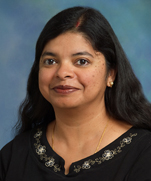 Paramita Ghosh, a UC Davis associate professor and expert in signal transduction pathways in prostate cancer, has been selected as one of 350 scientists to work on a project that aims to reduce public exposure to environmental agents that can lead to cancer and that hopes to inspire research into multi-faceted approaches to cancer prevention, treatment and prolonged survival.
Paramita Ghosh, a UC Davis associate professor and expert in signal transduction pathways in prostate cancer, has been selected as one of 350 scientists to work on a project that aims to reduce public exposure to environmental agents that can lead to cancer and that hopes to inspire research into multi-faceted approaches to cancer prevention, treatment and prolonged survival.
The organization sponsoring the work is called Getting to Know Cancer, an independent volunteer non-governmental organization based in Nova Scotia, Canada. The group’s “Halifax Project” involves more than 350 cancer researchers from 21 countries participating in one of 24 teams to tackle problems in cancer.
Progressive neurodegenerative disorder linked to R-loop formation, UC Davis researchers find
 Researchers at UC Davis have identified a new feature of the genetic mutation responsible for the progressive neurodegenerative disorder fragile X-associated tremor/ataxia syndrome (FXTAS) — the formation of “R-loops,” which they believe may be associated with the disorder’s neurological symptoms, such as tremors, lack of balance, features of Parkinsonism and cognitive decline.
Researchers at UC Davis have identified a new feature of the genetic mutation responsible for the progressive neurodegenerative disorder fragile X-associated tremor/ataxia syndrome (FXTAS) — the formation of “R-loops,” which they believe may be associated with the disorder’s neurological symptoms, such as tremors, lack of balance, features of Parkinsonism and cognitive decline.
The finding suggests that the R-loops may be potential targets for drug development, said Paul Hagerman, senior study author, professor in the Department of Biochemistry and Molecular Medicine and director of the UC Davis NeuroTherapeutics Research Institute. The study, “Transcription-associated R-loop Formation across the Human FMR1 CGG-repeat Region,” is published today in the online journal PLoS Genetics.
Mushroom-supplemented soybean extract shows therapeutic promise for advanced prostate cancer
 A natural, nontoxic product called genistein-combined polysaccharide, or GCP, which is commercially available in health stores, could help lengthen the life expectancy of certain prostate cancer patients, UC Davis researchers have found.
A natural, nontoxic product called genistein-combined polysaccharide, or GCP, which is commercially available in health stores, could help lengthen the life expectancy of certain prostate cancer patients, UC Davis researchers have found.
Paramita Ghosh, an associate professor in the UC Davis School of Medicine, led the pre-clinical study with a team that included UC Davis Comprehensive Cancer Center Director Ralph de Vere White, a UC Davis distinguished professor of urology. Ruth Vinall in the UC Davis Department of Urology and Clifford Tepper in the UC Davis Department of Biochemistry and Molecular Medicine directed the studies in mice; Ghosh’s laboratory conducted the cell studies.
Sloan Fellowship for "designer enzymes"
 Justin Siegel, a biochemist at the University of California, Davis, who uses computers to develop new "designer enzymes" with properties not found in nature, has been awarded a prestigious Sloan Research Fellowship to support his work.
Justin Siegel, a biochemist at the University of California, Davis, who uses computers to develop new "designer enzymes" with properties not found in nature, has been awarded a prestigious Sloan Research Fellowship to support his work.
The fellowship from the Alfred P. Sloan Foundation is worth about $50,000 over two years. Siegel, who is an assistant professor at the UC Davis Department of Chemistry, the School of Medicine's Department of Biochemistry and the UC Davis Genome Center, is one of 126 early career scientists to receive Sloan fellowships this year.
2013
David Segal interviewed by FOX40 news about do-it-yourself DNA testing
 Professor David Segal was interviewed by FOX40 News in light of the news that the Food & Drug Administration had ordered 23andMe to halt sales of its product. The video for this story is available on FOX40 News’s website.
Professor David Segal was interviewed by FOX40 News in light of the news that the Food & Drug Administration had ordered 23andMe to halt sales of its product. The video for this story is available on FOX40 News’s website.
UC Davis team "spikes" stem cells to generate myelin
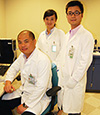 Stem cell technology has long offered the hope of regenerating tissue to repair broken or damaged neural tissue. Findings from a team of UC Davis investigators have brought this dream a step closer by developing a method to generate functioning brain cells that produce myelin — a fatty, insulating sheath essential to normal neural conduction.
Stem cell technology has long offered the hope of regenerating tissue to repair broken or damaged neural tissue. Findings from a team of UC Davis investigators have brought this dream a step closer by developing a method to generate functioning brain cells that produce myelin — a fatty, insulating sheath essential to normal neural conduction.
“Our findings represent an important conceptual advance in stem cell research,” said Wenbin Deng, principal investigator of the study and associate professor at the UC Davis Department of Biochemistry and Molecular Medicine. “We have bioengineered the first generation of myelin-producing cells with superior regenerative capacity.”
A new weapon against stroke
 One of regenerative medicine’s greatest goals is to develop new treatments for stroke. So far, stem cell research for the disease has focused on developing therapeutic neurons — the primary movers of electrical impulses in the brain — to repair tissue damaged when oxygen to the brain is limited by a blood clot or break in a vessel. New UC Davis research, however, shows that other cells may be better suited for the task.
One of regenerative medicine’s greatest goals is to develop new treatments for stroke. So far, stem cell research for the disease has focused on developing therapeutic neurons — the primary movers of electrical impulses in the brain — to repair tissue damaged when oxygen to the brain is limited by a blood clot or break in a vessel. New UC Davis research, however, shows that other cells may be better suited for the task.
“Astrocytes are often considered just ‘housekeeping’ cells because of their supportive roles to neurons, but they’re actually much more sophisticated,” said Wenbin Deng, associate professor of biochemistry and molecular medicine at UC Davis and senior author of the study. “They are critical to several brain functions and are believed to protect neurons from injury and death. They are not excitable cells like neurons and are easier to harness. We wanted to explore their potential in treating neurological disorders, beginning with stroke.”
UC Davis professors honored for excellence and achievement
 Two UC Davis School of Medicine faculty have been recognized with the C. John Tupper Prize for Excellence in Teaching and the Hibbard Williams Extraordinary Achievement Award as part of this year’s commencement events. At an awards luncheon today, the 2013 Tupper prize was given Michael Wilkes, professor of internal medicine; the Williams award went to Kit Lam, professor and chair of biochemistry and molecular medicine, and a professor of hematology and oncology.
Two UC Davis School of Medicine faculty have been recognized with the C. John Tupper Prize for Excellence in Teaching and the Hibbard Williams Extraordinary Achievement Award as part of this year’s commencement events. At an awards luncheon today, the 2013 Tupper prize was given Michael Wilkes, professor of internal medicine; the Williams award went to Kit Lam, professor and chair of biochemistry and molecular medicine, and a professor of hematology and oncology.
Created by the founding dean of the medical school, the Tupper prize recognizes sustained and enduring contributions to medical education. An important factor in the selection of award recipients is the widespread recognition of them as outstanding teachers.
Study identifies new approach to improving treatment for MS and other conditions
 Working with lab mice models of multiple sclerosis (MS), UC Davis scientists have detected a novel molecular target for the design of drugs that could be safer and more effective than current FDA-approved medications against MS.
Working with lab mice models of multiple sclerosis (MS), UC Davis scientists have detected a novel molecular target for the design of drugs that could be safer and more effective than current FDA-approved medications against MS.
“Etifoxine has a novel protective effect against the loss of the sheath that insulates the nerve fibers that transmit the signals from brain cells,” said Wenbin Deng, principal investigator of the study and associate professor of biochemistry and molecular medicine at UC Davis.
UC Davis receives awards to study new treatments for childhood diseases
 Three researchers from the University of California, Davis, that includes Associate Professor Lin Tian, are among the scientists selected to receive Individual Biomedical Research Awards from The Hartwell Foundation this year. The awards recognize early-stage, innovative and cutting-edge biomedical research that has the potential to benefit children in the U.S. and beyond.
Three researchers from the University of California, Davis, that includes Associate Professor Lin Tian, are among the scientists selected to receive Individual Biomedical Research Awards from The Hartwell Foundation this year. The awards recognize early-stage, innovative and cutting-edge biomedical research that has the potential to benefit children in the U.S. and beyond.
Each award provides $100,000 of direct support per year for three years, as well as videoconferencing equipment to facilitate mentorship with the Foundation and collaboration with other award recipients. UC Davis also received a Hartwell Fellowship to fund one postdoctoral candidate of its choice that exemplifies the values of the foundation. The fellowship provides support for two years at $50,000 in direct cost per year.
Tian receives international investigator award for brain function studies
 Lin Tian, assistant professor of biochemistry and molecular medicine at UC Davis School of Medicine, is one of 28 scientists worldwide awarded a 2013 Young Investigator Grant from the Human Frontier Science Program to better understand the complex mechanisms of living organisms.
Lin Tian, assistant professor of biochemistry and molecular medicine at UC Davis School of Medicine, is one of 28 scientists worldwide awarded a 2013 Young Investigator Grant from the Human Frontier Science Program to better understand the complex mechanisms of living organisms.
The 2013 competition involved a year-long selection process that began with more than 715 letters of intent and nearly 100 full applications. Tian and her collaborator will receive support of $250,000 per year for the three-year project.
150 ENDOWED CHAIRS: Honoring faculty members and donors
 The numbers added up nicely for the UC Davis Centennial celebration in 2008-09: The university had established 100 endowed chairs and professorships in its first 100 years.
The numbers added up nicely for the UC Davis Centennial celebration in 2008-09: The university had established 100 endowed chairs and professorships in its first 100 years.
Now, in just four years, 2009-13, UC Davis has added 50 more, for a total of 150, an achievement that coincides with the continuing Campaign for UC Davis.
Provost and Executive Vice Chancellor Ralph J. Hexter made the announcement to loud applause the night of April 3 at the annual Endowed Chairs and Professorships gala.
This year’s honored faculty included, Professor and Chair, Kit Lam.
UC Davis scientist wins prestigious grant to explore cancer spread and stem cell function
 Frederic A. Troy II, professor and chair emeritus of biochemistry and molecular medicine, has received a globally competitive research grant from the Mizutani Foundation for Glycoscience to better understand structural changes associated with metastasis of adult cancer cells and stem cells.
Frederic A. Troy II, professor and chair emeritus of biochemistry and molecular medicine, has received a globally competitive research grant from the Mizutani Foundation for Glycoscience to better understand structural changes associated with metastasis of adult cancer cells and stem cells.
Troy’s study, titled “Functional Analyses of Polysialic Acid DP on Human Cancer and Stem Cells,” specifically focuses a compound found in neural cell adhesion molecules that can regulate the cell-to-cell adhesive processes on human cancer and stem cells. His laboratory will investigate the degree of polymerization of polysialic acid and its role in activating key cancer signaling pathways.
2012
UC Davis researchers refine nanoparticles for more accurate delivery of cancer drugs
 A new class of nanoparticles, synthesized by a UC Davis research team to prevent premature drug release, holds promise for greater accuracy and effectiveness in delivering cancer drugs to tumors. The work is published in the current issue of Angewandte Chemie, a leading international chemistry journal.
A new class of nanoparticles, synthesized by a UC Davis research team to prevent premature drug release, holds promise for greater accuracy and effectiveness in delivering cancer drugs to tumors. The work is published in the current issue of Angewandte Chemie, a leading international chemistry journal.
In their paper, featured on the inside back cover of the journal, Kit Lam, professor and chair of the Department of Biochemistry and Molecular Medicine, and his team report on the synthesis of a novel class of micelles called dual-responsive boronate cross-linked micelles (BCMs), which produce physicochemical changes in response to specific triggers.
Genetic defect that causes fragile X-related disorders more common than thought
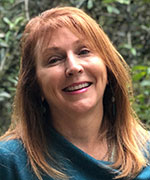 A single genetic defect on the X chromosome that can result in a wide array of conditions — from learning and emotional difficulties to primary ovarian insufficiency in women and tremors in middle-aged men — occurs at a much greater frequency than previously thought, research led by the UC Davis MIND Institute has found.
A single genetic defect on the X chromosome that can result in a wide array of conditions — from learning and emotional difficulties to primary ovarian insufficiency in women and tremors in middle-aged men — occurs at a much greater frequency than previously thought, research led by the UC Davis MIND Institute has found.
The research is based on the first large-scale, multicenter newborn screening effort for the defect in the United States, conducted in a group of more than 14,200 male and female infants at three research university medical centers piloting a new infant screening test developed at UC Davis.
The study, “FMR1 CGG Allele Size and Prevalence Ascertained Through Newborn Screening in the United States," was led by Flora Tassone, professor-in-residence in the Department of Biochemistry and Molecular Medicine, and was conducted using blood spots obtained from infant heel pricks as part of the normal newborn genetic screening process. It is published online in the journal Genome Medicine.
Health system signs agreement for collaborative projects, exchanges with Swedish medical school
 UC Davis Health System and the Lund University School of Medicine in Sweden have entered into an agreement to pursue collaborative projects in research, medical education and clinical care.
UC Davis Health System and the Lund University School of Medicine in Sweden have entered into an agreement to pursue collaborative projects in research, medical education and clinical care.
The agreement became effective with the signing of a memorandum of understanding in June. It arose from a longstanding relationship between John Voss, UC Davis professor of biochemistry and molecular medicine, and Jens Lagerstedt, an assistant professor of biochemistry at Lund University School of Medicine. Previously, Lagerstedt had conducted postdoctoral research at the UC Davis School of Medicine, and hosted Voss for a research sabbatical in the fall of 2011.
UC Davis researchers create molecule that blocks pathway leading to Alzheimer's disease
 UC Davis researchers have found novel compounds that disrupt the formation of amyloid, the clumps of protein in the brains of people with Alzheimer's disease believed to be important in causing the disease's characteristic mental decline. The so-called "spin-labeled fluorene compounds" are an important new target for researchers and physicians focused on diagnosing, treating and studying the disease.
UC Davis researchers have found novel compounds that disrupt the formation of amyloid, the clumps of protein in the brains of people with Alzheimer's disease believed to be important in causing the disease's characteristic mental decline. The so-called "spin-labeled fluorene compounds" are an important new target for researchers and physicians focused on diagnosing, treating and studying the disease.
The study, published today in the online journal PLoS ONE, is entitled "The influence of spin-labeled fluorene compounds on the assembly and toxicity of the Aβ peptide."
"We have found these small molecules to have significant beneficial effects on cultured neurons, from protecting against toxic compounds that form in neurons to reducing inflammatory factors," said John C. Voss, professor of biochemistry and molecular medicine at the UC Davis School of Medicine and the principal investigator of the study. "As a result, they have great potential as a therapeutic agent to prevent or delay injury in individuals in the earliest stages of Alzheimer's disease, before significant damage to the brain occurs."
2011
UC Davis scientists receive Gates Foundation funding to address global health challenges
 Two UC Davis School of Medicine faculty will receive funding through Grand Challenges Explorations, an initiative created by the Bill & Melinda Gates Foundation that enables researchers worldwide to test unorthodox ideas that address persistent global health and development challenges.
Two UC Davis School of Medicine faculty will receive funding through Grand Challenges Explorations, an initiative created by the Bill & Melinda Gates Foundation that enables researchers worldwide to test unorthodox ideas that address persistent global health and development challenges.
Thomas Jue, professor of biochemistry and molecular medicine, will pursue a project titled “Sialic Acid Supplement for Improved Cognition.”
UC Davis researchers solve multiple sclerosis brain-cell mystery
 Researchers at UC Davis that included Professor Chengji Zhou, have discovered the source of cells involved in a phenomenon called reactive astrogliosis, characterized by a large number of enlarged star-shaped cells in the brains and spinal cords of people with multiple sclerosis (MS), Alzheimer's disease and multiple episodes of minor head trauma. In multiple sclerosis, these abnormal cells are found in plaques that damage the myelin sheath that surrounds neurons, impairing their signaling function.
Researchers at UC Davis that included Professor Chengji Zhou, have discovered the source of cells involved in a phenomenon called reactive astrogliosis, characterized by a large number of enlarged star-shaped cells in the brains and spinal cords of people with multiple sclerosis (MS), Alzheimer's disease and multiple episodes of minor head trauma. In multiple sclerosis, these abnormal cells are found in plaques that damage the myelin sheath that surrounds neurons, impairing their signaling function.
The study is led by David Pleasure, director of UC Davis' Institute for Pediatric Regenerative Medicine, and offers the first firm evidence to date that, at least in the case of multiple sclerosis, the cells are descendant from normal astrocytes.
Component of common cough medicine may help treat multiple sclerosis
 A drug widely used in over-the-counter cough medicines appears to protect against symptoms of multiple sclerosis, a finding that could offer a new and inexpensive therapy for a condition with few effective treatment options, a study by UC Davis researchers that includes Professor Wenbin Deng, has found.
A drug widely used in over-the-counter cough medicines appears to protect against symptoms of multiple sclerosis, a finding that could offer a new and inexpensive therapy for a condition with few effective treatment options, a study by UC Davis researchers that includes Professor Wenbin Deng, has found.
In tests using animal models, the drug, dextromethorphan, was found to significantly reduce the loss of the fatty sheath (or myelin) surrounding nerve fibers in the central nervous system and to minimize the development of paralysis during multiple sclerosis attacks.
UC Davis researchers discover target molecule to repair injured nerve cells
 A team of investigators at UC Davis and Shriners Hospital have discovered that a factor in the embryonic development of brain cells is an important target for developing new drugs and stem cell therapies to treat patients who have lost function from multiple sclerosis, cerebral palsy, stroke and other “demyelinating” diseases and injuries. The study, which was conducted in mice, appears online today in Scientific Reports, a new primary research, open-access journal from the publishers of Nature.
A team of investigators at UC Davis and Shriners Hospital have discovered that a factor in the embryonic development of brain cells is an important target for developing new drugs and stem cell therapies to treat patients who have lost function from multiple sclerosis, cerebral palsy, stroke and other “demyelinating” diseases and injuries. The study, which was conducted in mice, appears online today in Scientific Reports, a new primary research, open-access journal from the publishers of Nature.
“We have discovered that enhancing a factor important in early brain development could play a powerful role in healing,” said Wenbin Deng, principal investigator of the study and leader of a team of researchers at the Institute of Pediatric Regenerative Medicine at Shriners Hospital for Children, Northern California. “This information can be very important for harnessing the regenerative capacity of the brain through drugs or stem cell therapy.”
Prostate cancer, chronic fatigue not linked to XMRV virus
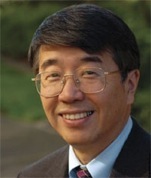
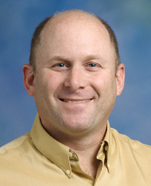 A study that includes Hsing-Jien Kung and Clifford Tepper as co-authors, has found that a retrovirus associated with prostate cancer tumors and chronic fatigue syndrome that evolved in laboratory mice less than two decades ago is unlikely to be widespread in humans and the cause of either disease.
A study that includes Hsing-Jien Kung and Clifford Tepper as co-authors, has found that a retrovirus associated with prostate cancer tumors and chronic fatigue syndrome that evolved in laboratory mice less than two decades ago is unlikely to be widespread in humans and the cause of either disease.
The study of the retrovirus, xenotropic murine leukemia virus-related virus, or XMRV, appears online in the journal Science.
Paul Hagerman receives 2011 School of Medicine Research Award
 Paul Hagerman, an internationally respected researcher on treatments and cures for fragile X syndrome and related health conditions, has been honored with a 2011 UC Davis School of Medicine Research Award.
Paul Hagerman, an internationally respected researcher on treatments and cures for fragile X syndrome and related health conditions, has been honored with a 2011 UC Davis School of Medicine Research Award.
“I’m very flattered and honored by this recognition. Working at UC Davis for the past 10 years has been wonderful, and I believe that part of my thriving here has been because of the phenomenal support I have received from the university and school administration and my colleagues,” said Hagerman, a professor of biochemistry and molecular medicine who is affiliated with the UC Davis MIND Institute.
UC Davis researcher receives Grand Challenges Explorations Grant for groundbreaking malaria research
 UC Davis functional genomics expert David Segal will receive a $100,000 Grand Challenges Explorations (GCE) grant to advance his work in identifying pharmaceuticals that target the genetics of malaria and overcome antimalarial drug resistance.
UC Davis functional genomics expert David Segal will receive a $100,000 Grand Challenges Explorations (GCE) grant to advance his work in identifying pharmaceuticals that target the genetics of malaria and overcome antimalarial drug resistance.
Announced today by the Bill & Melinda Gates Foundation, GCE grants are awarded to individuals worldwide with bold ideas for solving persistent global health and development challenges.
2010
UC Davis researchers to define connections between vascular and Alzheimer's diseases
 A team of UC Davis investigators that includes Professor John Voss, has received a $2.7 million, five-year grant from the National Institutes of Health to research the links between vascular disease and Alzheimer’s disease.
A team of UC Davis investigators that includes Professor John Voss, has received a $2.7 million, five-year grant from the National Institutes of Health to research the links between vascular disease and Alzheimer’s disease.
“Clinicians have suspected for a while that cardiovascular problems could also be risks for Alzheimer’s but don’t know exactly how they are linked,” said John Rutledge, a UC Davis professor of cardiovascular medicine and principal investigator on the grant. “This study is the first to provide a detailed examination of vascular-disease processes that can make the brain more vulnerable to Alzheimer’s disease.”
Lam appointed chair of biochemistry and molecular medicine at UC Davis
 Kit S. Lam, an international leader in cancer therapeutics and a founder of the field of combinatorial chemistry, has been appointed chair of the UC Davis School of Medicine Department of Biochemistry and Molecular Medicine.
Kit S. Lam, an international leader in cancer therapeutics and a founder of the field of combinatorial chemistry, has been appointed chair of the UC Davis School of Medicine Department of Biochemistry and Molecular Medicine.
In his new role, Lam oversees the work of more than 60 scientists with research grants and contracts totaling nearly $11 million annually. The department is focused on uncovering the biochemical, biophysical, molecular and cellular foundations of disease — from cancer to diabetes to fragile X syndrome. As chair, he leverages the vast expertise of the department to improve drug development and other treatments for a wide range of illnesses and to foster partnerships to speed discoveries in stem cell science, neuroscience, biophotonics and cardiovascular health.
Faculty selected for Dean's Awards
 Six faculty members and two faculty teams that included Professor Paul Hagerman’s team, have been selected to receive three awards from the Office of Faculty Development: the Dean’s Award for Excellence, the Dean’s Team Award for Excellence, and the Dean’s Excellence in Mentoring Award.
Six faculty members and two faculty teams that included Professor Paul Hagerman’s team, have been selected to receive three awards from the Office of Faculty Development: the Dean’s Award for Excellence, the Dean’s Team Award for Excellence, and the Dean’s Excellence in Mentoring Award.
Individual awardees received a cash prize of $2,000; the team awards received $5,000 per team. All were honored at a faculty recognition reception on March 2.
2009
UC Davis researchers receive prestigious stimulus grant for stem-cell research on FXTAS
 UC Davis researchers are among a handful of scientists nationwide to receive a highly coveted challenge grant from the National Institutes of Health, funded by the American Recovery and Reinvestment Act. The award is one of only 200 selected from among 22,000 challenge grant applications.
UC Davis researchers are among a handful of scientists nationwide to receive a highly coveted challenge grant from the National Institutes of Health, funded by the American Recovery and Reinvestment Act. The award is one of only 200 selected from among 22,000 challenge grant applications.
The research is being led by Paul Hagerman, a professor in the Department of Biochemistry and Molecular Medicine in the School of Medicine at UC Davis and the director of the UC Davis Neurotherapeutics Research Institute.
Innovative, collaborative projects recognized with 2009 CTSC pilot grants
 Professor David Segal is one among the seven UC Davis researchers that received pilot grant awards from the UC Davis Clinical and Translational Science Center (CTSC) to conduct innovative and collaborative research. The awards support studies ranging from work on a more effective epilepsy drug to an improved computer interface for controlling a wheelchair, room lights and a computer mouse.
Professor David Segal is one among the seven UC Davis researchers that received pilot grant awards from the UC Davis Clinical and Translational Science Center (CTSC) to conduct innovative and collaborative research. The awards support studies ranging from work on a more effective epilepsy drug to an improved computer interface for controlling a wheelchair, room lights and a computer mouse.
UC Davis researchers develop new test for fragile X syndrome
 Researchers at UC Davis have developed a new test that will measure the protein deficit responsible for fragile X syndrome — the single-most common cause of intellectual impairment and the most-commonly inherited cause of autism.
Researchers at UC Davis have developed a new test that will measure the protein deficit responsible for fragile X syndrome — the single-most common cause of intellectual impairment and the most-commonly inherited cause of autism.
Study senior author Paul J. Hagerman, a professor in the Department of Biochemistry and Molecular Medicine in the UC Davis School of Medicine and director of the NeuroTherapeutics Research Institute (NTRI), said the study describes “a powerful tool to further investigate the relationship between FMR1 and the broad range of clinical involvement in fragile X syndrome.”
UC Davis biochemist Jue is editor of new book, "Fundamental Concepts in Biophysics"
 Thomas Jue, a professor in the UC Davis Department of Biochemistry and Molecular Medicine, is the editor of a newly published book, “Fundamental Concepts in Biophysics.”
Thomas Jue, a professor in the UC Davis Department of Biochemistry and Molecular Medicine, is the editor of a newly published book, “Fundamental Concepts in Biophysics.”
The book is the first volume in a series titled “Handbook of Modern Biophysics,” also to be edited by Jue. The books in the series will bring current biophysics topics into focus and expand as the field of biophysics expands, so that biology and physical-science students or researchers can learn fundamental concepts and apply new biophysics techniques to address biomedical questions.
UC Davis researchers identify a protein that may help breast cancer spread, beat cancer drugs
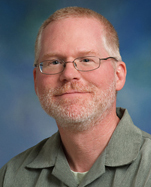 New research from UC Davis Cancer Center shows that a protein called Muc4 may be the essential ingredient that allows breast cancer to spread to other organs and resist therapeutic treatment. The study, which appears in the April 1 issue of Cancer Research, is one of the first to characterize the role of Muc4 in the disease.
New research from UC Davis Cancer Center shows that a protein called Muc4 may be the essential ingredient that allows breast cancer to spread to other organs and resist therapeutic treatment. The study, which appears in the April 1 issue of Cancer Research, is one of the first to characterize the role of Muc4 in the disease.
Kermit Carraway, senior author of the study, knew that Muc4 was not always expressed in primary breast cancer tumors, yet it could be present in lymph node metastases. He suspected that it may have a specialized function in the process of metastasis.
2008
UC Davis researchers find molecule that targets brain tumors
 UC Davis Cancer Center researchers report today the discovery of a molecule that targets glioblastoma, a highly deadly form of cancer. The finding, which is published in the January 2009 issue of the European Journal of Nuclear Medicine and Molecular Imaging, provides hope for effectively treating an incurable cancer.
UC Davis Cancer Center researchers report today the discovery of a molecule that targets glioblastoma, a highly deadly form of cancer. The finding, which is published in the January 2009 issue of the European Journal of Nuclear Medicine and Molecular Imaging, provides hope for effectively treating an incurable cancer.
Glioblastoma is the most common and aggressive type of primary brain tumor in adults. It is marked by tumors with irregular shapes and poorly defined borders that rapidly invade neighboring tissues, making them difficult to remove surgically.
"These brain tumors are currently treated with surgery to remove as much of the tumor as possible followed by radiation to kill cancer cells left behind and systemic chemotherapy to prevent spread to nearby tissues," said Kit Lam, senior author of the study and UC Davis chief of hematology and oncology. "It is unfortunate that this approach does not extend survival significantly. Most patients survive less than one year."
UC Davis researchers discover a key to aggressive breast cancer
 In trying to find out why HER2-positive breast cancer can be more aggressive than other forms of the disease, UC Davis Cancer Center researchers have surprisingly discovered that HER2 itself is the culprit. By shutting down its own regulator gene, HER2 creates a permissive environment for tumor growth.
In trying to find out why HER2-positive breast cancer can be more aggressive than other forms of the disease, UC Davis Cancer Center researchers have surprisingly discovered that HER2 itself is the culprit. By shutting down its own regulator gene, HER2 creates a permissive environment for tumor growth.
Building on recent research showing that the regulator — labeled LRIG1 and commonly called "Lig-1" — limits the growth-promoting signals of HER2, the research team set out to clarify the role of Lig-1 in breast cancer.
They found that, when compared to healthy breast tissue, the regulator is significantly suppressed.
"This suppression assists HER2 in its own over-expression and in driving the growth of cancer cells," said Colleen Sweeney, associate professor of biochemistry and molecular medicine and senior author of the study, which appears in this month's issue of Cancer Research. "HER2 is clearly taking an active role its own ability to be successful in promoting cancer."
Study identifies ancestral European genetic groups
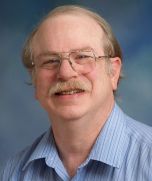 An international team of scientists lead by UC Davis researchers has found genetic markers in European Americans that distinguish among different ethnic groups. The results, which expand on a previous study by the group that identified genetic markers for Northern and Southern European populations, will aid efforts by scientists working to determine risk factors and optimize treatment for complex human diseases "Our results should enhance the quest of many investigators to optimize the search for genetic variations that are in part responsible for disease susceptibility," said Michael Seldin, chair of the Rowe Program in Genetics at UC Davis School of Medicine.
An international team of scientists lead by UC Davis researchers has found genetic markers in European Americans that distinguish among different ethnic groups. The results, which expand on a previous study by the group that identified genetic markers for Northern and Southern European populations, will aid efforts by scientists working to determine risk factors and optimize treatment for complex human diseases "Our results should enhance the quest of many investigators to optimize the search for genetic variations that are in part responsible for disease susceptibility," said Michael Seldin, chair of the Rowe Program in Genetics at UC Davis School of Medicine.
2007
IN RESEARCH: Genetic risk factor ID’d for autoimmune diseases
 A newly identified genetic variation increases the risk of two chronic, auto-immune inflammatory diseases: rheumatoid arthritis and systemic lupus erythematosus. These research findings result from a long-time collaboration between the Intramural Research Program of the National Institute of Arthritis and Musculoskeletal and Skin Diseases, or NIAMS, and other organizations, including the UC Davis Health System. NIAMS is part of the National Institutes of Health. The research findings were published in the Sept. 6 issue of the New England Journal of Medicine.
A newly identified genetic variation increases the risk of two chronic, auto-immune inflammatory diseases: rheumatoid arthritis and systemic lupus erythematosus. These research findings result from a long-time collaboration between the Intramural Research Program of the National Institute of Arthritis and Musculoskeletal and Skin Diseases, or NIAMS, and other organizations, including the UC Davis Health System. NIAMS is part of the National Institutes of Health. The research findings were published in the Sept. 6 issue of the New England Journal of Medicine.
Michael Seldin, chair of the Rowe Program in Genetics and a professor in the UC Davis Department of Biochemistry and Molecular Medicine, assisted in both the design and analysis of the study. The work was an outgrowth of previous collaborations conducted by the North American Rheumatoid Arthritis Consortium, of which Seldin is a founding investigator.
UC Davis receives more than $21 million to find treatments that reverse common cause of dementia
 The same research team who discovered an age-related neurological disorder will now receive nearly $21.8 million from the National Institutes of Health (NIH) to develop new treatments for it. The funding establishes the NeuroTherapeutics Research Institute at the University of California, Davis, which is dedicated to finding effective interventions that reduce or eliminate the debilitating balance problems, tremors and dementia associated with older adults who have FXTAS, or fragile X-associated tremor/ataxia syndrome. The five-year grant is the largest funding award in history to focus on this or any other fragile X-related disorder.
The same research team who discovered an age-related neurological disorder will now receive nearly $21.8 million from the National Institutes of Health (NIH) to develop new treatments for it. The funding establishes the NeuroTherapeutics Research Institute at the University of California, Davis, which is dedicated to finding effective interventions that reduce or eliminate the debilitating balance problems, tremors and dementia associated with older adults who have FXTAS, or fragile X-associated tremor/ataxia syndrome. The five-year grant is the largest funding award in history to focus on this or any other fragile X-related disorder.
Led by molecular geneticist Paul Hagerman, the institute is one of nine interdisciplinary research consortia announced today by the NIH Roadmap for Medical Research. The roadmap's goal is to integrate different disciplines to address health challenges that have been resistant to traditional research approaches. Funding the consortia represents a fundamental change in both the culture within which biomedical and behavioral research is conducted and the culture within the NIH, where research projects are normally managed by an individual institute or center.
Assessing the impact of ancestry genes on women's health
 UC Davis researchers are conducting a first-of-its-kind genetic study to determine the importance of ancestry on the development of diseases in women. The research is a follow up to the landmark Women's Health Initiative study, which assessed the long-term benefits of common treatments for preventing heart disease, breast and colorectal cancer and osteoporosis fractures — the most frequent causes of death and poor quality of life in postmenopausal women.
UC Davis researchers are conducting a first-of-its-kind genetic study to determine the importance of ancestry on the development of diseases in women. The research is a follow up to the landmark Women's Health Initiative study, which assessed the long-term benefits of common treatments for preventing heart disease, breast and colorectal cancer and osteoporosis fractures — the most frequent causes of death and poor quality of life in postmenopausal women.
"This research allows us to identify additional genes that are important in causing diseases that disproportionately affect women or affect them in different ways than men," explained Professor Michael Seldin, principal investigator and chair of the Rowe Program in Human Genetics at UC Davis.
2006
UC Davis study finds distinct genetic profiles for northern, southern Europeans
 An international team of scientists led by researchers at UC Davis Health has found that, with respect to genetics, modern Europeans fall into two groups: A Northern group and a Southern, or Mediterranean one. The findings, published in the Sept. 14 edition of Public Library of Science Genetics, are important because they provide a method for scientists to take into account European ancestry when looking for genes involved in diseases. "Until now, little has been known about the distribution of genetic variation in European populations and how much that distribution matters in terms of doing genetic studies," said Michael Seldin, chair of the Rowe Program in Genetics at UC Davis Health System. "Now we will be able to control for these differences in European populations in our efforts to find genes that cause common diseases." Seldin, who is also a professor of biochemistry and professor of medicine at UC Davis, worked with his colleagues to compare genetic data for 928 individuals.
An international team of scientists led by researchers at UC Davis Health has found that, with respect to genetics, modern Europeans fall into two groups: A Northern group and a Southern, or Mediterranean one. The findings, published in the Sept. 14 edition of Public Library of Science Genetics, are important because they provide a method for scientists to take into account European ancestry when looking for genes involved in diseases. "Until now, little has been known about the distribution of genetic variation in European populations and how much that distribution matters in terms of doing genetic studies," said Michael Seldin, chair of the Rowe Program in Genetics at UC Davis Health System. "Now we will be able to control for these differences in European populations in our efforts to find genes that cause common diseases." Seldin, who is also a professor of biochemistry and professor of medicine at UC Davis, worked with his colleagues to compare genetic data for 928 individuals.



